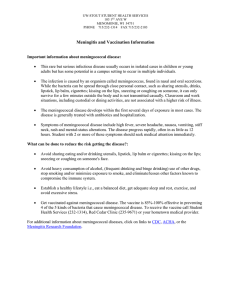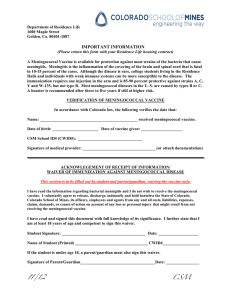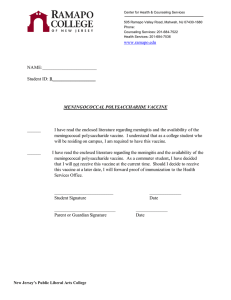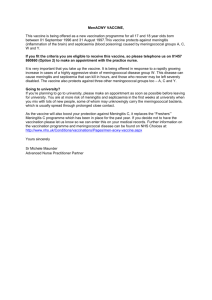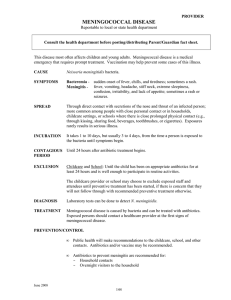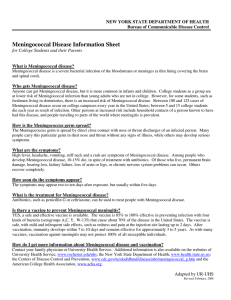Document 13431903
advertisement
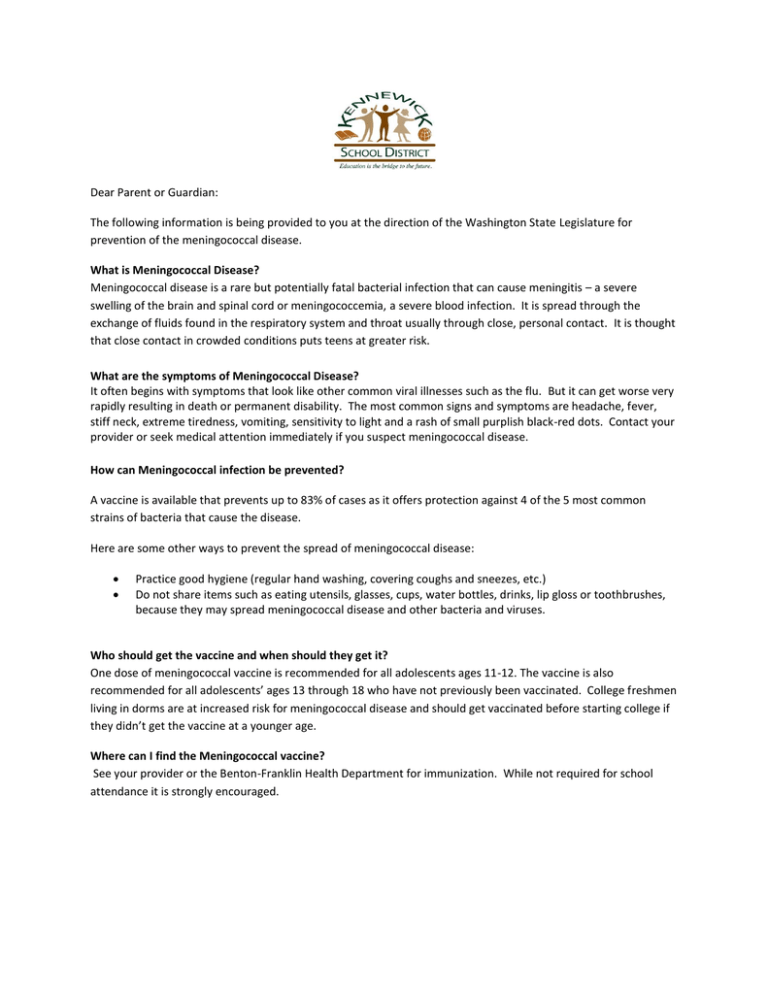
Dear Parent or Guardian: The following information is being provided to you at the direction of the Washington State Legislature for prevention of the meningococcal disease. What is Meningococcal Disease? Meningococcal disease is a rare but potentially fatal bacterial infection that can cause meningitis – a severe swelling of the brain and spinal cord or meningococcemia, a severe blood infection. It is spread through the exchange of fluids found in the respiratory system and throat usually through close, personal contact. It is thought that close contact in crowded conditions puts teens at greater risk. What are the symptoms of Meningococcal Disease? It often begins with symptoms that look like other common viral illnesses such as the flu. But it can get worse very rapidly resulting in death or permanent disability. The most common signs and symptoms are headache, fever, stiff neck, extreme tiredness, vomiting, sensitivity to light and a rash of small purplish black-red dots. Contact your provider or seek medical attention immediately if you suspect meningococcal disease. How can Meningococcal infection be prevented? A vaccine is available that prevents up to 83% of cases as it offers protection against 4 of the 5 most common strains of bacteria that cause the disease. Here are some other ways to prevent the spread of meningococcal disease: Practice good hygiene (regular hand washing, covering coughs and sneezes, etc.) Do not share items such as eating utensils, glasses, cups, water bottles, drinks, lip gloss or toothbrushes, because they may spread meningococcal disease and other bacteria and viruses. Who should get the vaccine and when should they get it? One dose of meningococcal vaccine is recommended for all adolescents ages 11-12. The vaccine is also recommended for all adolescents’ ages 13 through 18 who have not previously been vaccinated. College freshmen living in dorms are at increased risk for meningococcal disease and should get vaccinated before starting college if they didn’t get the vaccine at a younger age. Where can I find the Meningococcal vaccine? See your provider or the Benton-Franklin Health Department for immunization. While not required for school attendance it is strongly encouraged.
